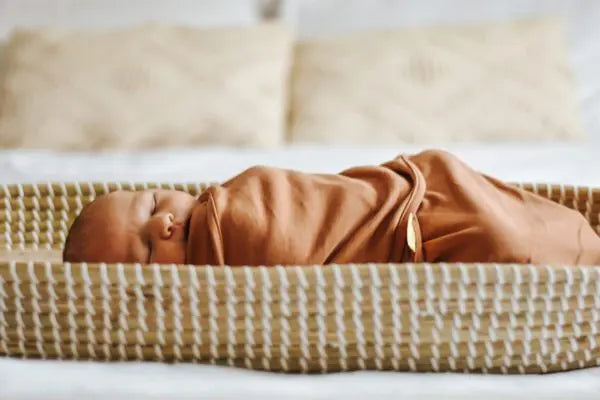Quite regularly we have guest bloggers, we invite experts to give some advice to our readers and we are very fortunate to have Lucy from Sleep Matters writing for us this month. In her blogpost she has outlined 7 of the more common mistakes that parents make in relation to naps and how those mistakes may impact sleep routines for little ones at night. Some invaluable reading here folks...

Naps are challenging to say the least. Day time sleep is quite different to night time sleep and although not the same, they are related and have a big impact on each other. Achieving adequate day time sleep can make all the difference to a restful sleep over-night and can help parents avoid unnecessary melt downs from a cumulatively over tired child, who finds it difficult to process the challenges of the day. Be aware that young children typically require day time sleep until age 3 or beyond. I’ve detailed below 7 common nap mistakes that parents make:
- An inappropriate day time schedule. Commonly, I find that parents do not completely recognise the importance of day time sleep and how much respect it requires. Parents use words like “always been a bad napper”, “doesn’t need much day time sleep”, “fights sleep” to describe their child. Typically, a child who doesn’t sleep well during the day time is on an incorrect day time schedule for his/her body. Due to the nature of the internal body clock the young body needs to be reset, by waking up around the same time, eating at the around the same time and sleeping at around the same time every day. Historically poor day time sleepers are on an inconsistent day time schedule, waking too late, nap timing being outside of their sleep rhythms or sometimes on a consistent schedule, but one that is not in sync with the natural body clock. Become informed, find out how much day time sleep your child may require based on their age group and ensure that you have a regular wake up time every day, even on weekends. I find 7.30am is a great anchor for regulating the body clock.
- An inadequate sleep environment. Can often be a contributing factor of poor day time sleep. The architecture of sleep can be fragile and quality of sleep is super important. Quality of sleep is defined by sleep that happens at the right time for the body as explained above, but also quality is defined by the right This would mean in a sleep friendly environment, cot/bed; adequately dark-black out blinds are great for this and also within a space where there is not too much noise and/or distractions. Remember that your child’s sleep is not dissimilar to your sleep, so consider whether you yourself could rest well in the environment that you have provided.
- Absence of a pre nap wind down ritual. Failing to give your child enough time to start to relax before the allocated sleep time can mean your child may fail to sleep. Before each sleep that your child takes, I would recommend an abbreviated version of the bedtime routine, carried out in the sleep environment; in dim lights, similar to bedtime. This can really help to bridge the gap between the activity of the day time activities and time for sleep and in turn help your child to know what is happening and what you expect of him/her at this time..which is to sleep…
- Parents have misread tired signals. The whole tired and sleepy signals area can be confusing. Some parents interpret crankiness, eye rubbing and whinging as being time for sleep when in fact in my experience it is probably more an indication of being over–tired. Learn the difference, starting to get tired may be represented by a brief eye rub, brief yawn, glazing out, tuning out, starting to quiet. This is the optimum time for sleep. If you can learn to read these signals and act on them, the fight generally can be eliminated and longer sleeps can be achieved. Over-tired sleep cues would be intense eye rubbing, big yawns, crankiness, whinging, agitated, impatient behaviour. At this stage the body has had a chemical response that makes achieving day sleep very challenging and also contributes to short 30-40 minute sleep durations.
- Nap imbalance to the day. Naps that happen too early in the day or indeed too late in the day can make napping difficult and also can create problems at bedtime. From 6 months of age onwards most young children need a morning nap relatively soon after waking…generally within 2-3 hours of waking. If that first nap is timed incorrectly the rest of the day can unravel, leading to a cycle of overtiredness. Until around 15-18 months, children require 2 naps during the day within 2-3 hours of each other. Often nap 1 is a strong sleep and nap 2 is weak and this imbalance can cause day time sleep issues. Nap 1 and nap 2 should either be of equal duration or nap 2 should be the longer sleep.
- Naps on the go. As parents we all want our children to be adjustable and for their schedules to fit in with ours within reason, but often too much reliance on motion sleep, car/buggy can impair the quality of the sleep and also add to naps that are not long enough. Limit motion sleep where possible so the ratio of sleep on the go represents maybe only 20% of all day sleep on a week by week view.
- Incorrect nap transitions. Young children require a lot of day time sleep, but all sleep is not equal. Transitioning a baby prematurely from 4 naps to 3 and 3 to 2 and indeed two to one, before they are biologically ready can really add to a day time sleep deprivation and an incorrect balance to their sleep need and cause day sleep and sometimes night sleep to fall apart, resulting in frequent night waking, short naps and even early rising.
Typical naps transition ages would be
4 naps to 3 =around 6months
3 naps to 2 = around 8 months
2 to 1 = around 15-18 months
Lucy Wolfe, HDip RM, MA is a Sleep Consultant, Co-Creational Relationship Mentor, Author of The Baby Sleep Solution and All About the Baby Sleep Solution, creator of “Sleep Through”, a natural bed and body sleep spray and relaxing rub, and Mum of four. She runs a private sleep consulting practice and online courses where she provides knowledge, expertise, and valuable support to families around the world. See www.sleepmatters.ie




Leave a comment
This site is protected by hCaptcha and the hCaptcha Privacy Policy and Terms of Service apply.